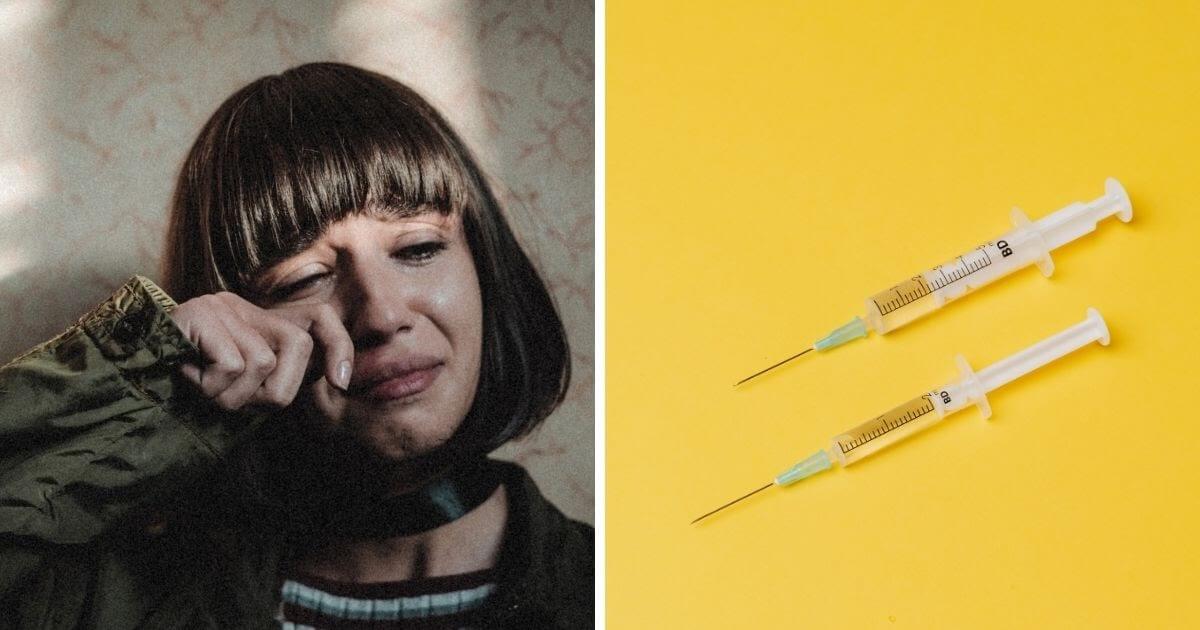A young mum with cancer who considered ending her life at a Dignitas clinic has shared her inspiring story after receiving specialist treatment.
Estelle Wignall, 27, from Wigan was diagnosed with ovarian cancer in 2017 after experiencing symptoms for years.
Estelle said: “People said I was being a hypochondriac. Nobody took me seriously – but I just knew. It was an instinct”.
She was only 22 and, after she was finally diagnosed, doctors removed a tumour as well as her right ovary and Fallopian tube.
Estelle thought the whole thing was behind her. She got married in 2019 and the couple had their first child in 2020.
“I had only one ovary and so to conceive so quickly felt like a miracle”, Estelle recalls.
“I didn’t have my regular checks because I was pregnant, and during the birth, the midwife actually noticed nodules on my cervix and I was referred for more tests, which came back clear”.
“I was actually planning a hysterectomy so that there was no chance the cancer could return”.
“The first time I had cancer, I coped well”.
However, before she was able to have a hysterectomy, she began to feel sick once more. She initially attributed this to an intense diet she had started “to get rid of my baby weight”.
“But I started to feel very tired and I had no appetite. I thought it was all due to the diet – but it got worse and I began to think the cancer might be back”.
Later that year, Estelle was devastated to learn the cancer was back and it had spread to her liver and lungs. She was told that she only had two to three years to live.
“The first time I had cancer, I coped well. But this time, because of Brooke, I was heartbroken. She was just six months old and it felt so cruel”.
At her lowest points, Estelle even considered booking herself into the assisted suicide centre, Dignitas, in Switzerland.
‘Natural therapies’ helped to change her mind
After both chemotherapy and surgery though, Estelle says her perspective has changed.
She found holistic therapies and alternative treatments have been able to make her feel better.
“I hit very low points… but my treatment has gone so well that I am now looking at helping other women, offering them the natural therapies that I believe have helped me to stay alive”.
Estelle has since launched her own business and hopes to continue to inspire and support other women in a similar position to her.
“I am living proof that you should never, ever give up”.
Right To Life UK spokesperson, Catherine Robinson, said: “Estelle’s inspiring story shows that the wish to die is often transient and is motivated by fear and sadness. Evidence shows that the primary concerns for people to want to end their lives by an assisted suicide are emotional and psychological and not physical. For example, a recent Irish study showed that almost three quarters of people over 50 who had previously expressed a wish to die no longer had that desire two years later. It also found that their wish to die was associated with high levels of loneliness”.
“Similarly in Oregon, which legalised assisted suicide in 1997, 94.3% of people who ended their lives in this way were concerned with being “Less able to engage in activities making life enjoyable”.
“Estelle’s story and these data show that people need support and therapy to assist them to live, not to die”.












